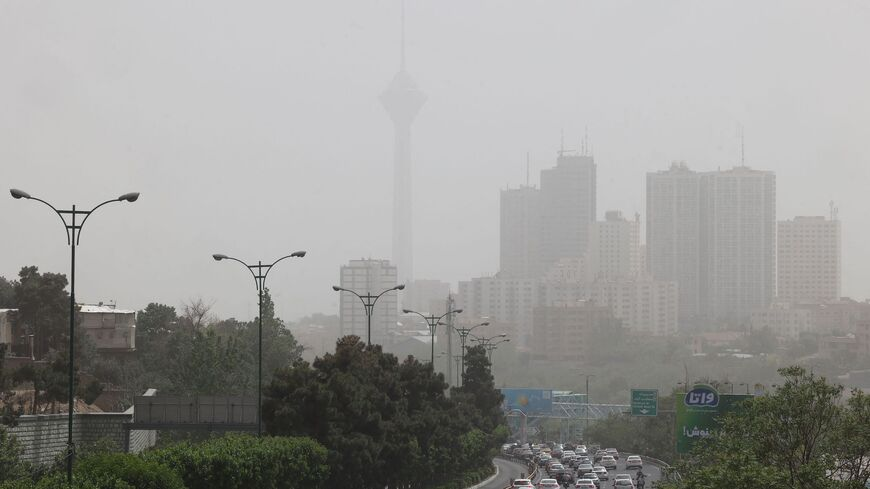
Tehran recently hosted a regional summit on addressing the dust storms that have ravaged the area over the past two years.
Iran’s President Ebrahim Raisi accused Western powers of playing into the destruction of environment by tapping into the Middle East’s natural resources.
Raisi was addressing a regional summit in Tehran that brought together environment chiefs from 11 countries, including Iraq, Syria and Turkey. The conference is focused on delivering solutions for regional environmental crises, particularly severe dust storms, with which the region is currently grappling.
Raisi argued that “the excessive greed of the hegemonic system” as well as a policy of “keeping the governments and nations of the region deprived of science and technology … have led to the emergence of irreparable environmental crises.”
The hard-line cleric criticized Western states for having compromised the environment in countries they have exploited for the purpose of their own economic development, asserting that those powers are “the ones who should take more responsibility.”
Once limited to Iran’s western areas, dust storms have in the past two years spread to the country’s central regions, including the capital Tehran and even to the northeastern city of Mashhad. Combined with the already alarming air pollution, the storms have been disastrous for cities, repeatedly closing schools and major public offices.
Iranian environmentalists, journalists and the general public have been pressuring the Raisi government to take practical measures to resolve the issue at the source in neighboring countries.
While the causes of the dust storms appear to be manifold, Iran has partly blamed it on environmental policies in Iraq and dam construction in Turkey. Those projects are believed to have caused drying up of major regional water resources, leading to problems on Iranian soil.
Raisi told the Tehran conference that his country welcomes “cooperation and convergence” on solutions to shared environmental problems and proposed a joint regional fund to address them.
“In its constitution, the Islamic Republic paid attention to the environment as a necessity for the community to thrive,” Raisi declared in his speech.
Yet several Iranian administrations have faced relentless criticism for their perceived failure to prioritize the environment, such as looking the other way as Lake Urmia has almost entirely vanished in less than a decade.
The Iranian establishment has often viewed environmental activism through a security lens and cracked down on activists, putting them behind bars to serve lengthy terms for such crimes as “acting against national security.”
